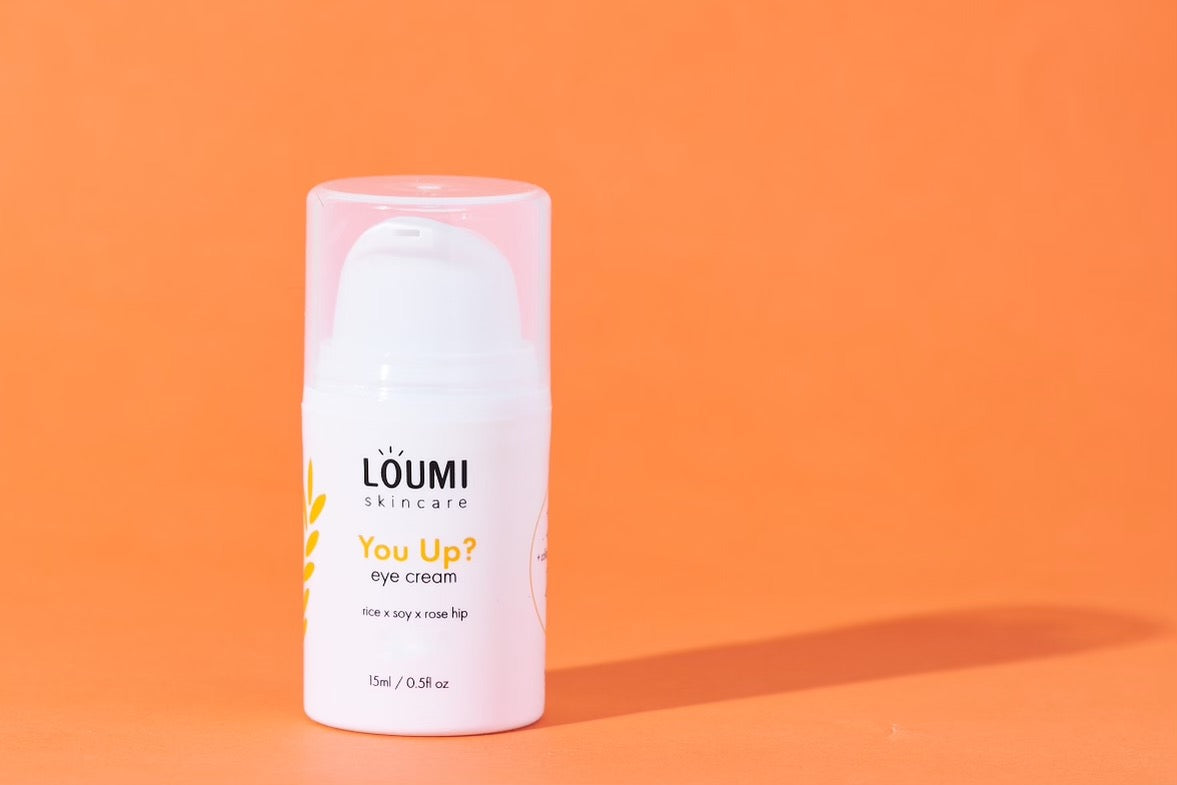
Allergies are a common issue that many people face, and they can manifest in various ways. Two prevalent forms of allergies are hay fever and rhinitis. Both hay fever and rhinitis can significantly impact not only your respiratory system but also your skin, leading to various skin allergies. In this blog, we'll delve into the intricacies of hay fever and rhinitis, their effects on the skin, and how to manage these symptoms effectively. Plus, we'll explore how LOUMI Skincare products are perfect for individuals dealing with these issues.
What are Hay Fever and Rhinitis?
Hay fever, also known as allergic rhinitis, is an allergic reaction to airborne substances such as pollen. It typically occurs during specific seasons when these allergens are more prevalent in the environment. Symptoms of hay fever include sneezing, itchy and watery eyes, runny or blocked nose, and sinus pressure.
Rhinitis refers to the inflammation of the nasal mucous membranes and can be allergic or non-allergic. Allergic rhinitis, often synonymous with hay fever, is triggered by allergens like pollen, dust mites, pet dander, and mold. Non-allergic rhinitis can result from irritants such as smoke, strong odors, or changes in weather.
The Skin Connection: How Hay Fever and Rhinitis Affect Your Skin
The impact of hay fever and rhinitis isn't confined to your respiratory system. These conditions can also lead to skin issues, particularly in individuals with sensitive skin. Here's how:
-
Inflammation and Itching
- Hay fever and rhinitis cause an immune response that releases histamines, leading to inflammation and itching. This can affect the skin around the nose, eyes, and even other parts of the body.
-
Dryness and Flakiness
- Constant rubbing and scratching due to itching can disrupt the skin barrier, leading to dryness and flakiness. This can be particularly troublesome for individuals with already sensitive skin.
-
Eczema Flare-Ups
- Those with eczema may experience flare-ups during hay fever or rhinitis episodes. The immune response can exacerbate eczema symptoms, making the skin red, inflamed, and itchy.
-
Allergic Contact Dermatitis
- Hay fever and rhinitis sufferers may be more prone to developing allergic contact dermatitis. This occurs when the skin comes into contact with an allergen, causing a red, itchy rash.
-
Hives (Urticaria)
- In some cases, the histamine release associated with hay fever and rhinitis can lead to hives. These are raised, itchy welts that can appear anywhere on the body and vary in size.
Managing Skin Allergies Caused by Hay Fever and Rhinitis
-
Identify and Avoid Triggers
- The first step in managing skin allergies caused by hay fever and rhinitis is to identify and avoid triggers. Keep windows closed during high pollen seasons, use air purifiers, and shower after being outside to remove pollen from your skin and hair.
-
Maintain a Gentle Skincare Routine
- Use gentle, hypoallergenic skincare products that are free from fragrances and harsh chemicals. Look for products that are specifically designed for sensitive skin to avoid further irritation. LOUMI Skincare offers a range of products perfect for individuals with sensitive skin and allergies.
-
Stay Hydrated
- Hydration is key to maintaining healthy skin. Drink plenty of water and use a good moisturizer to keep your skin hydrated and prevent dryness and flakiness. LOUMI Skincare's hydrating serums and moisturizers can help maintain your skin's moisture barrier.
-
Use Antihistamines
- Over-the-counter antihistamines can help reduce the histamine response, alleviating symptoms of hay fever and rhinitis and preventing skin reactions.
-
Consult a Dermatologist
- If your skin allergies persist or worsen, consult a dermatologist. They can provide personalized advice and treatments to manage your skin condition effectively.
Why Choose LOUMI Skincare?
LOUMI Skincare is designed with sensitive skin in mind. Our products are vegan, cruelty-free, paraben-free, sulfate-free, gluten-free, and non-GMO. This makes them ideal for individuals dealing with hay fever and rhinitis, as they are less likely to cause irritation or allergic reactions. Some of our top recommendations for sensitive skin include:
- Rose Glow Illuminating Oil: This lightweight oil hydrates and soothes the skin, perfect for maintaining your skin's barrier during allergy season.
- Hydrating Serums: Our serums deeply hydrate the skin without clogging pores, ideal for preventing dryness and flakiness.
- Gentle Cleansers: These cleansers remove impurities without stripping the skin of its natural oils, reducing the risk of irritation.
Explore our full range of products at LOUMI Skincare to find the perfect solutions for your skincare needs during allergy season and beyond.
Conclusion
Hay fever and rhinitis can be more than just seasonal nuisances—they can significantly impact your skin health, leading to various skin allergies. Understanding the connection between these conditions and your skin is crucial for managing symptoms effectively. By taking proactive steps to avoid triggers, maintaining a gentle skincare routine, and staying hydrated, you can minimize the impact of hay fever and rhinitis on your skin and enjoy healthier, more comfortable skin throughout the year.
For those dealing with sensitive skin due to hay fever and rhinitis, LOUMI Skincare offers the perfect products to keep your skin healthy and glowing. Visit our website today to discover how our products can help you manage your skin allergies and achieve radiant, allergy-free skin.
